Phantom Thread
 for language.
for language.
Reviewed by: Jonathan Rodriguez
CONTRIBUTOR
| Moral Rating: | Offensive |
| Moviemaking Quality: |
|
| Primary Audience: | Adults |
| Genre: | Romance Drama |
| Length: | 2 hr. 10 min. |
| Year of Release: | 2017 |
| USA Release: |
December 22, 2017 (4 select theaters) January 5, 2018 (5 theaters) January 12, 2018 (62 theaters) January 19, 2018 (wide—896 theaters) DVD: April 10, 2018 |
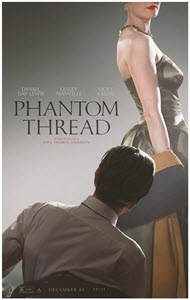

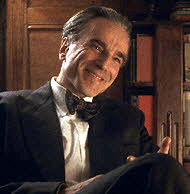
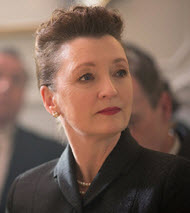
Fashion designers / haute couture
Ego
Obsession
Husband wife relationship—older man younger woman
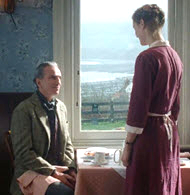
Class differences and distinctions
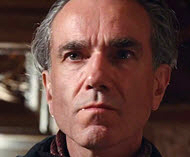
Dysfunctional marriage relationship
Controlling and domineering husbands
Abusive relationships
Codependency
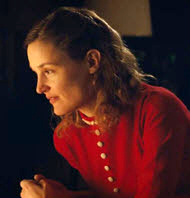
Abusive wives
Masochism / masochists

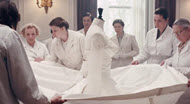
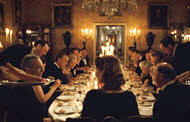

| Featuring |
|---|
|
Daniel Day-Lewis … Reynolds Woodcock Vicky Krieps … Alma Lesley Manville … Cyril Sue Clark … Biddy Joan Brown … Nana Harriet Leitch … Pippa Dinah Nicholson … Elsa Julie Duck … Irma Maryanne Frost … Winn Elli Banks … Elli See all » |
| Director |
| Paul Thomas Anderson — “Punch-Drunk Love” (2002), “Boogie Nights” (1997), “Magnolia” (1999), “There Will Be Blood” (2007) |
| Producer |
|
Paul Thomas Anderson Chelsea Barnard See all » |
| Distributor |
T
he last time director Paul Thomas Anderson (“Inherent Vice,” “The Master”) and Daniel Day-Lewis (“Lincoln”) worked together, they brought audiences “There Will Be Blood,” a film widely considered by critics to be one of the best of this century. And it was a film that garnered Lewis his second Academy Award (of three). Naturally, all eyes would be on any movie that brought these two back together. But, with Daniel Day-Lewis saying that “Phantom Thread” will be his last film, hopes were high that the pair could deliver one more time. And boy do they.Lewis plays Reynolds Woodcock, a (fictional) famous dressmaker in London in the 1950’s. He’s famous enough that women approach his table while he is dining to let him know how much they dream of one day wearing his dresses. Reynolds is a regimented man, dedicated completely to his work, who has surrounded himself with people who fall into line exactly as he expects them to. If someone has decided to be around him, whether in business, employment, or pleasure, it is understood that they must accept him for who he is and change themselves into what he needs them to be.
His sister Cyril (Lesley Manville) runs the business and manages the team of seamstresses that dutifully file into their home every morning for work. She knows her brother better than anyone else, and, and because he is so particular and demanding, she serves as a tutor to those experiencing him for the first time. When Reynolds’ lady of the month can no longer handle him or begins to grate on his nerves, it is Cyril who does the dirty work of sending her away.
While dining out of town one morning, he is served by a woman named Alma (Vicky Krieps). We first meet her as she stumbles out of the kitchen and nearly falls over. Instead of wilting away in embarrassment, Alma simply smiles to herself and carries on. After Reynolds orders a large, complicated breakfast, he asks her if she will remember his order and then takes the slip from her on which she has written it down. She assures him she will, and when she comes through without error, he asks her to dinner. He is drawn to her confidence, and she to his single-minded passion for work, and the two begin a relationship upon which the remainder of the film is based.
After the initial wooing stage, Alma is expected to settle into the same role that all Reynolds’ other women have been forced to settle into. But, unbeknownst to him, he may have finally met his match.
“Phantom Thread” is rated R “for language.” There are perhaps a dozen uses of the F-word in the film, and nothing much else beyond that in the way of language except “h*ll” and “d*mn.” There is one scene where Reynolds has Alma take her dress off so he can take measurements to make her a new dress. The slip she is wearing underneath her dress is thin and see-through, and her breasts are visible through it over the course of the scene. Other women are occasionally seen in undergarments as they are sized or fitted for dresses, but nothing explicit is shown.
Reynolds and Alma stay in separate rooms while they are dating, but one night we see the two of them enter his bedroom together. Nothing is shown, but their newfound sexual relationship is implied. There is a reference made to Reynolds and his sister being watched over by their dead mother. He doesn’t see that as a spooky thing; he is more comforted by it. He even imagines her at one point. Of course, as Christians, we know that to be absent from the body is to be present with the Lord. When each of us dies, we will face eternity either in Heaven—for accepting the forgiveness and salvation offered through Christ’s death and resurrection, or in Hell—for refusing to acknowledge our sin and be forgiven. We won’t be showing up in our children’s bedrooms as ghosts to comfort them.
But, as far as R-rated films go, “Phantom Thread” is certainly on the milder side of things. There is a twist near the end that some might find…disturbing? Dark? Twisted? It’s hard to say how people will react to it. It’s nothing violent or sexual or sacrilegious. It’s just… different. It’s either going to work for you as far as the story goes, or it won’t. I can’t describe it without giving away major spoilers, but know it’s coming and leave comments as to your thoughts on it. I’m curious what other viewers might think. Children will likely have zero interest in the film, but adults that are intrigued by the cast and premise should, as always, exercise discernment and caution when deciding what is right for them.
But, is the movie any good? I have always enjoyed reviewing for Christian Spotlight on the Movies, and reviewing movies in 2017 was no exception. While I did see a handful of stinkers (I’m mainly looking at you “The Dark Tower” and “The Emoji Movie”), the year was a pretty good one at the movies. But, as good as some of the movies were, I personally can’t say I saw anything quite like “Phantom Thread.” It almost goes without saying, but there isn’t a better actor working today than Daniel Day-Lewis. And if this is indeed his last film, he is exiting on a nearly perfect note. Lesley Manville is great as his sister, a woman we see change along the way, growing stronger and becoming emboldened by the presence of Alma. I had never heard of Vicky Krieps prior to this film, but she is a force to be reckoned with. She goes toe-to-toe with the best actor alive and more than holds her own, giving the best performance in a film loaded with great ones.
Now, I’m not particularly bullish about Paul Thomas Anderson. I enjoyed “There Will Be Blood” and “Magnolia,” but have never been keen on his other films. Truthfully, one of the things I liked most about “Magnolia” was how ambitious and sprawling and complex and overflowing with characters it was; Robert Altman’s influence was felt every step of the way. But “Phantom Thread” isn’t like anything else Anderson has ever written or directed. It’s more intimate and focused; there are very few wide shots in the film. There are essentially only three main characters. The camera obsesses over them the way Woodcock obsesses over his dresses. And the characters are fascinating and rich and so full of depth.
The first hour is spent really getting to know the characters as they become familiar with each other, and as they get to know themselves as they relate to the other person. Or, we think we know them. About halfway through the film, a layer is pulled back and a deeper, more complex one is revealed—one we certainly wouldn’t have expected in the beginning, but one that we started to see glimpses of along the way. It slowly begins to change the tone of the movie. And then…the final act. What a thoroughly unexpected twist. We go another layer deeper into the story, into their relationship, into their own minds even. I was blown away. I didn’t for a second see the relationship going in that direction, but within the confines of what we’ve come to know of the characters, it makes perfect sense.
It’s a gutsy direction for Anderson to take it, and I get the feeling that some people will hate it. I know this sounds exceedingly vague, and it must be. But when we finally see where this relationship is truly headed, I was reminded of something Alma says very early on in their courtship. Reynolds tells her, “I feel as if I have been looking for you for a very long time.” Alma replies “You found me.” And then she gives him some advice—a gentle warning, even. We think it’s her way of protecting herself. But, as the closing credits roll, we see, as Reynolds finally does, exactly what she meant.
- Violence: Moderate
- Profane language: “hell” (6)
- Vulgar/Crude language: Heavy—f-words (11-12), “bloody”
- Nudity: Moderate
- Sex: Minor
See list of Relevant Issues—questions-and-answers.


PLEASE share your observations and insights to be posted here.


My Ratings: Moral rating: Average / Moviemaking quality: 4